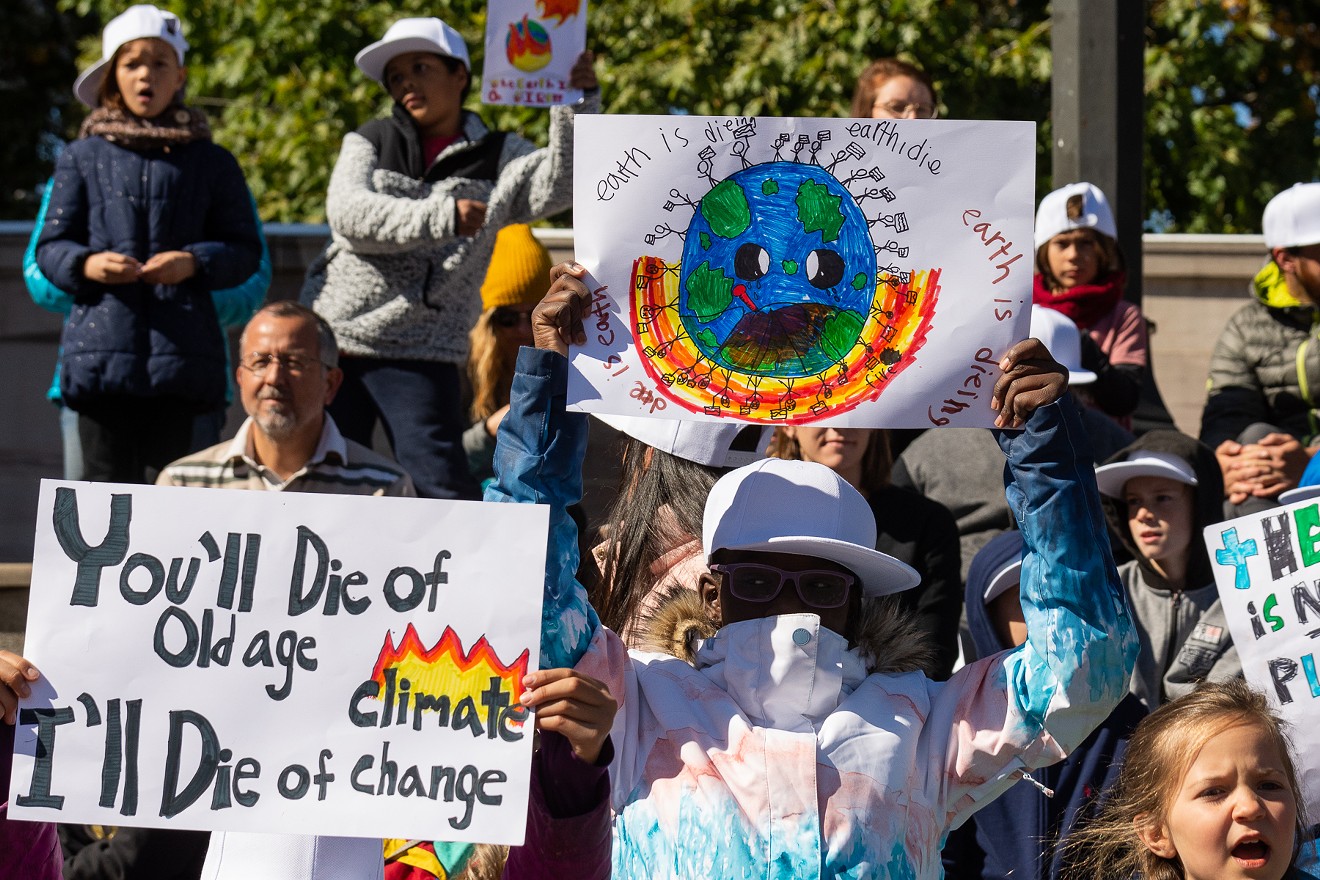City officials are kicking off an extensive process to evaluate and strengthen Denver’s efforts to tackle climate change, and they want you to be a part of it.
The Office of Sustainability is currently accepting applications for its Climate Action Task Force, a newly created panel that will help city staff update policies and programs aimed at reducing greenhouse gas emissions, ensuring an equitable energy transition and adapting to a changing climate.
The city is seeking a task force composed of “20 to 24 diverse community leaders” representing a wide variety of interest groups, who will meet weekly beginning in December and be tasked with “creating consensus” around an updated climate plan. Interested community members must apply online by Thursday, November 14.
The creation of the Climate Action Task Force follows an agreement reached earlier this year between Mayor Michael Hancock and a group of city councilmembers pushing for stronger climate action at the city level. Under the agreement, council president Jolon Clark and others shelved a proposed ballot measure that would have asked Denver voters to approve an energy tax to better fund climate programs, giving Hancock’s administration more time to review its efforts, identify “gaps” and potentially craft a new tax proposal.
Hancock also agreed to create and fund a new Office of Climate Action, Sustainability and Resiliency, which will combine the current Office of Sustainability with climate-focused staff from the city’s Department of Public Health and Environment. City council is expected to approve an ordinance later this month that will formally establish the office by July 1, 2020.
“We’re recognizing that we’re facing a crisis on climate, and on our planet, and that Denver needs to really aggressively start tackling this,” Clark said during a committee hearing on the ordinance last week. “We’ve done a lot of really great work, but it's time to take that to the next level.”
Denver’s total greenhouse gas emissions have declined slightly over the past decade, largely because of the cleaner electricity supplied by Xcel Energy. Far less progress has been made on two other large sources of emissions, transportation and natural-gas heating — and that will have to change quickly if the city hopes to meet its goal of cutting emissions 45 percent below 2005 levels by 2030.
Tackling emissions from the transportation and heating sectors will require dramatically increasing the number of Denver commuters who take public transit or drive electric vehicles, making buildings more energy efficient and converting from natural gas to electric heating systems. Under the new ordinance, which city council is scheduled to consider at its meeting today, November 12, much of the city's climate work will be coordinated through the Office of Climate Action, Sustainability and Resiliency, which will report directly to the mayor's office.
“The climate work is housed in a particular group, but it is certainly work that is happening all across the city,” Skye Stuart, Hancock’s legislative director, told councilmembers during last week’s committee hearing. “We have, for instance, EV work happening in Public Works. We have building energy-efficiency work happening in General Services. So [we’re] making sure that this office has the ability to coordinate that work across agencies.”
One challenge that Denver and other cities face in electrifying the transportation and heating sectors is cost. While new wind- and solar-powered generating capacity remains relatively cheap, it's unavoidably expensive to build thousands of new EV charging stations, replace gas-powered furnaces with electric ones and achieve the so-called deep decarbonization scientists say is necessary to fully halt climate change.
That's why climate activists support an energy tax like the one proposed by Clark earlier this year — or a similar measure backed by grassroots group Resilient Denver, which is currently set to appear on Denver's 2020 ballot. As part of its review of the city's efforts, the Climate Action Task Force could recommend a tax proposal for the mayor's office and city council to consider next summer.
“That group will report out on some recommendations for all of us to take next steps in the May through July time frame,” Stuart said, “which may include addressing funding needs at the ballot in November, if that’s the recommendation of the group.”
[
{
"name": "Air - MediumRectangle - Inline Content - Mobile Display Size",
"component": "12017618",
"insertPoint": "2",
"requiredCountToDisplay": "2"
},{
"name": "Editor Picks",
"component": "17242653",
"insertPoint": "4",
"requiredCountToDisplay": "1"
},{
"name": "Inline Links",
"component": "18838239",
"insertPoint": "8th",
"startingPoint": 8,
"requiredCountToDisplay": "7",
"maxInsertions": 25
},{
"name": "Air - MediumRectangle - Combo - Inline Content",
"component": "17261320",
"insertPoint": "8th",
"startingPoint": 8,
"requiredCountToDisplay": "7",
"maxInsertions": 25
},{
"name": "Inline Links",
"component": "18838239",
"insertPoint": "8th",
"startingPoint": 12,
"requiredCountToDisplay": "11",
"maxInsertions": 25
},{
"name": "Air - Leaderboard Tower - Combo - Inline Content",
"component": "17261321",
"insertPoint": "8th",
"startingPoint": 12,
"requiredCountToDisplay": "11",
"maxInsertions": 25
}
]












